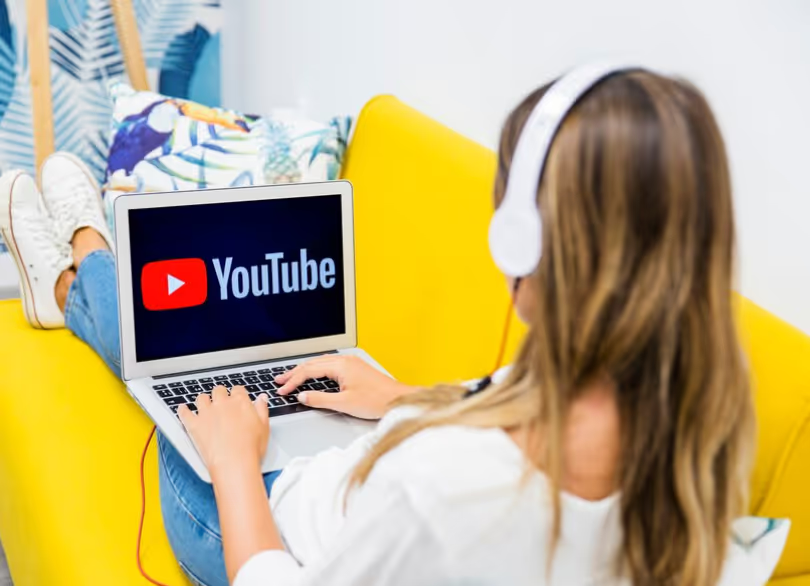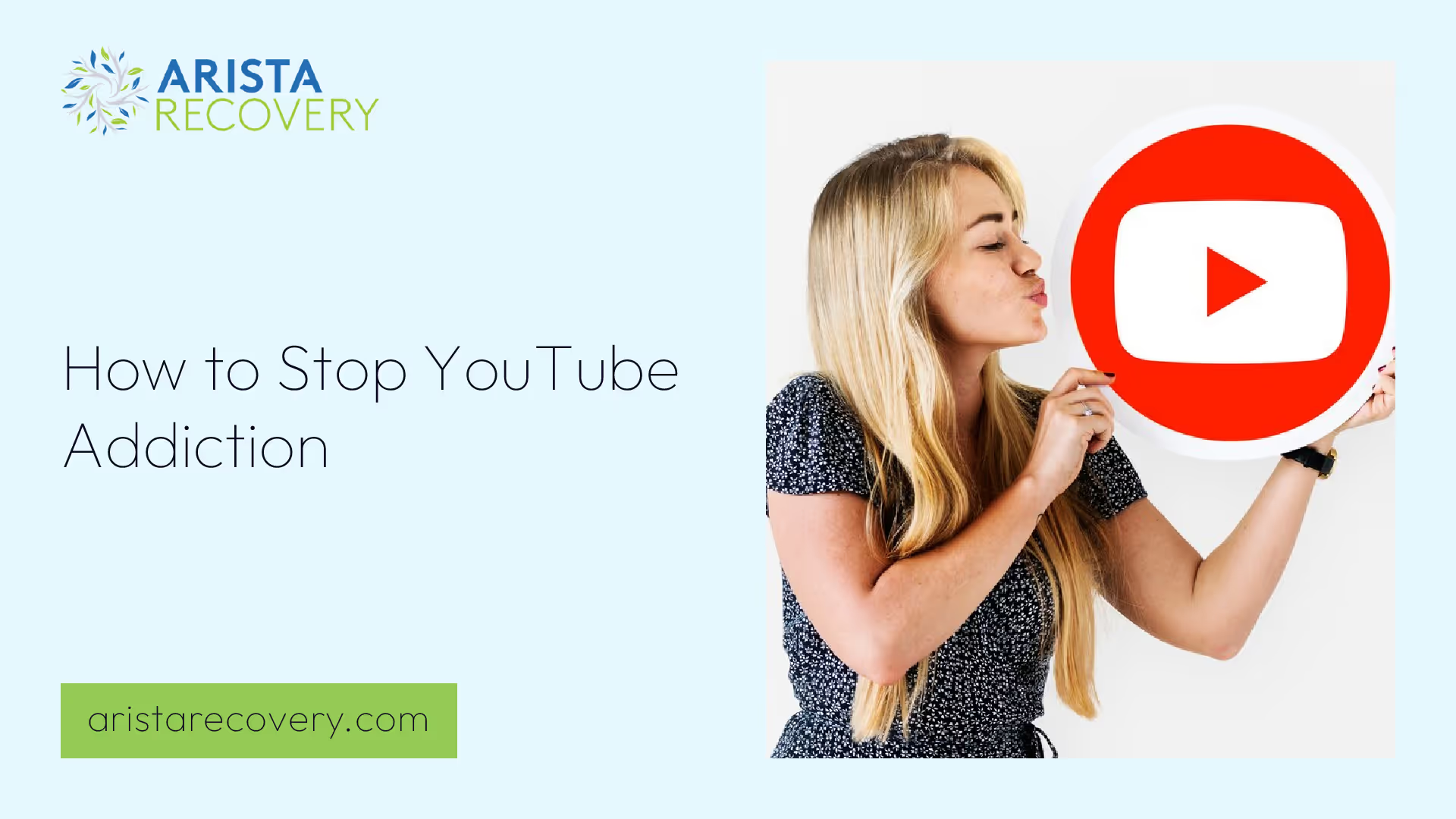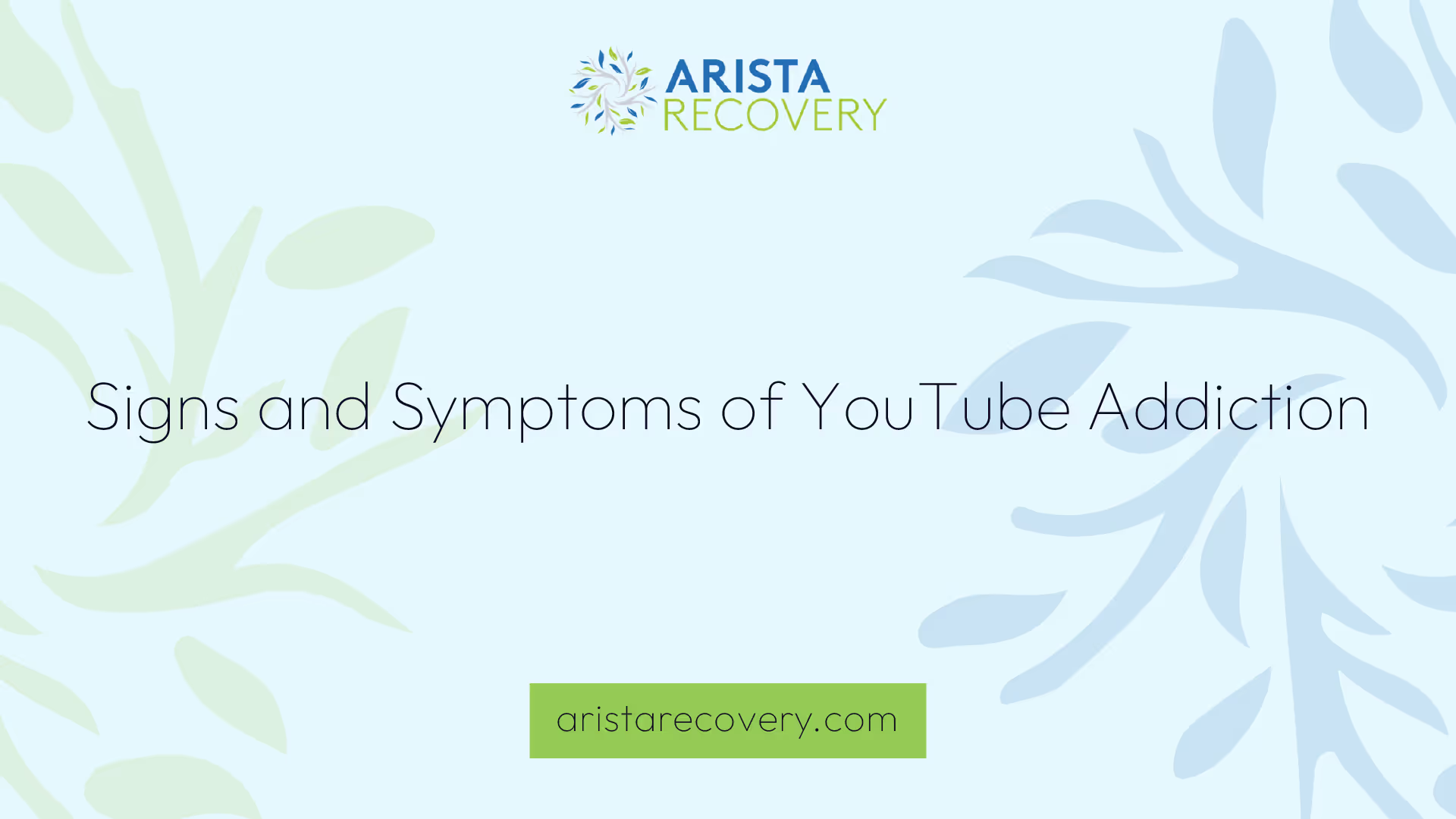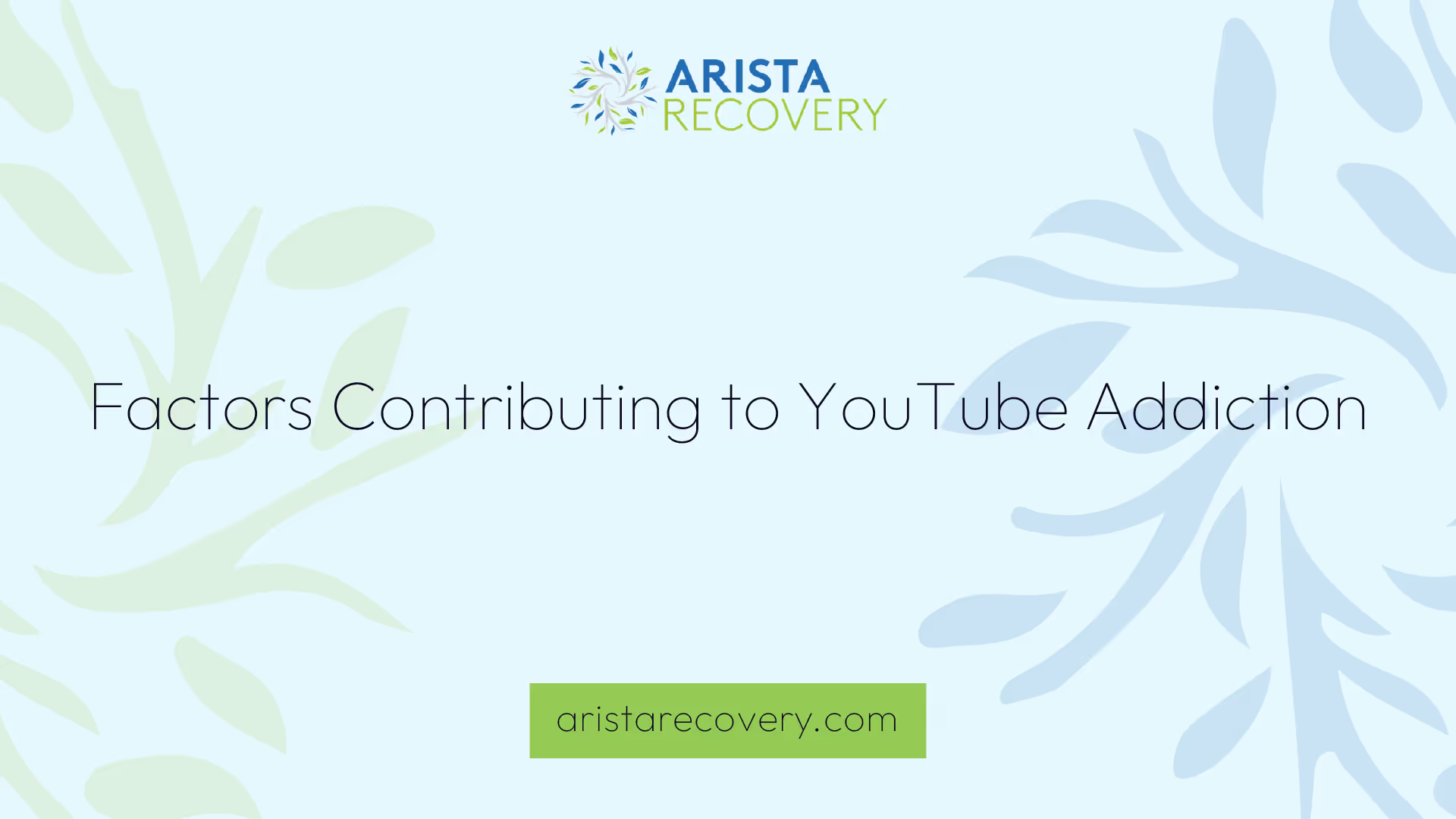How to Stop YouTube Addiction


Understanding YouTube Addiction
YouTube has become an integral part of daily life for many individuals. However, its widespread use can sometimes lead to addictive behaviors. Understanding YouTube addiction is the first step in addressing and overcoming it.
Definition of Behavioral Addiction
Behavioral addiction, also known as process addiction, is a type of non-substance addiction where an individual becomes dependent on certain behaviors or actions. Similar to substance addiction, behavioral addictions are characterized by the inability to control or limit the behavior, despite negative consequences. A notable example of behavioral addiction recognized in the DSM-5 is Internet Gaming Disorder (IGD) [1].
YouTube addiction specifically refers to a compulsive and excessive use of the YouTube platform that interferes with an individual's daily life and responsibilities. This type of addiction shares similarities with other behavioral addictions, such as gaming addiction and social media addiction. It is driven by the gratification and stimulation provided by YouTube content, leading to a cycle of excessive use and dependency [2].
Impact of YouTube on Behavior
The impact of YouTube on behavior can be profound, leading to significant changes in an individual's daily routine and mental health. YouTube is the most addictive site/app online, with people watching upwards of 1 billion hours of videos daily, surpassing Netflix and Facebook combined. Over 5 billion videos are viewed on YouTube daily, with more than 70% of views coming from mobile devices [3].
The excessive and compulsive urge to consume content on YouTube can have several negative impacts:
- Prolonged Video Watching: Spending extended periods watching videos, often at the expense of other important activities.
- Neglecting Responsibilities: Failing to meet personal, academic, or professional obligations due to time spent on YouTube.
- Experiencing Anxiety: Feeling anxious or distressed when not able to access YouTube.
- Diminishing Interest in Offline Activities: Losing interest in hobbies, social interactions, and other offline activities.
Understanding these impacts is crucial for those looking to break free from YouTube addiction. Setting boundaries, seeking professional help, and establishing healthy habits can aid in overcoming this addiction. For more information on related topics, you can explore articles on how to stop phone addiction for students and how to stop dopamine addiction.
By educating oneself about the definition and impact of YouTube addiction, individuals and families can take proactive steps to manage and reduce their reliance on the platform.

Signs and Symptoms of YouTube Addiction
Recognizing the signs and symptoms of YouTube addiction is the first step toward addressing and managing the issue. Understanding these symptoms can help individuals and families identify problematic behaviors and seek appropriate interventions.
Prolonged Video Watching
One of the primary indicators of YouTube addiction is prolonged video watching. Individuals may find themselves spending excessive amounts of time on the platform, often losing track of time. This behavior is driven by YouTube's recommendation algorithms, which continuously suggest new videos to watch, making it difficult to stop [1].
Prolonged video watching can lead to a cycle of dependency, where the individual feels compelled to continue watching despite negative consequences. This behavior is similar to other behavioral addictions, such as gaming addiction or social media addiction [2].
Neglecting Responsibilities
Another significant symptom of YouTube addiction is neglecting responsibilities. Individuals may start to prioritize watching YouTube videos over essential tasks and obligations, such as work, school, or household chores. This neglect can lead to disruptions in various aspects of daily life, including relationships, work performance, and overall well-being [1].
Neglecting responsibilities due to YouTube addiction can have long-term negative impacts on an individual's life. It is essential to recognize this symptom early and take steps to address the underlying issues.
Understanding these signs and symptoms can help in identifying YouTube addiction and taking the necessary steps to overcome it. For more information on how to address this issue, explore our articles on how to stop dopamine addiction and how to stop phone addiction for students.

Factors Contributing to YouTube Addiction
Understanding the factors that contribute to YouTube addiction is crucial in addressing and overcoming it. This section explores two primary factors: recommendation algorithms and psychological and mental health impacts.
Recommendation Algorithms
YouTube's recommendation algorithm plays a significant role in fostering addictive behaviors. The platform utilizes complex algorithms to suggest videos based on a user’s viewing history and preferences. This personalized content stream keeps users engaged and often leads to prolonged video-watching sessions. According to Verywell Mind, the wide variety of videos on YouTube and the recommendation algorithm can make it difficult to know when to stop watching, leading to excessive viewing habits that interfere with daily life.
Psychological and Mental Health Impacts
Behavioral addiction, such as YouTube addiction, shares similarities with other forms of behavioral dependencies like gaming or social media addiction. It is driven by the gratification and stimulation provided by the content, leading to a cycle of excessive use and dependency [2]. People with behavioral addictions, including YouTube addiction, tend to experience higher rates of anxiety, substance use, mood disorders, and other mental health concerns compared to the general population [1].
Excessive YouTube use can lead to disruptions in daily life, affecting relationships and work performance. Even if it doesn't qualify as a clinical addiction, it can still create significant problems [1].
To address these psychological impacts, it's essential to establish healthy habits and set boundaries. For those seeking more information on related topics, check out our articles on how to stop phone addiction for students and how to stop dopamine addiction.
By understanding these contributing factors, individuals can take proactive steps to manage their YouTube usage and prevent it from becoming an addiction.
Overcoming YouTube Addiction
Addressing YouTube addiction requires deliberate actions and strategies. Two key approaches include setting boundaries and limits, and seeking professional help.
Setting Boundaries and Limits
Establishing boundaries and limits is crucial for managing and overcoming YouTube addiction. Effective strategies include:
- Creating a Schedule: Allocate specific times for watching YouTube. This helps prevent binge-watching and ensures other important activities are not neglected [2].
- Setting Time Limits: Use productivity tools and apps to manage and monitor screen time. These tools can alert users when they have reached their daily limit, helping to curb excessive use.
- Finding Alternative Activities: Replace video consumption with other engaging activities. This can include hobbies, physical exercise, or social interactions, which can provide a healthier balance in daily life.
- Practicing Self-Awareness: Regularly evaluate how much time is spent on YouTube and assess its impact. Self-monitoring helps to identify patterns and triggers that lead to excessive use.
Implementing these strategies can significantly reduce the time spent on YouTube and help individuals regain control over their daily routines. For more tips on managing screen time, visit our article on how to stop phone addiction for students.
Seeking Professional Help
Professional help can provide valuable support for those struggling with YouTube addiction. Mental health professionals offer various treatment options and strategies to manage and potentially eliminate excessive video-watching habits.
- Therapy: Cognitive Behavioral Therapy (CBT) and other therapeutic approaches can address underlying mental health concerns contributing to YouTube addiction. Therapy can also help develop healthier coping mechanisms and alternative behaviors.
- Support Groups: Joining support groups, either online or in-person, can provide a sense of community and shared experiences. This can be particularly helpful for individuals who feel isolated or misunderstood in their struggles.
- Medical Consultation: In cases where YouTube addiction is linked to other mental health issues, such as anxiety or mood disorders, a medical professional can offer a comprehensive treatment plan that may include medication or other interventions.
Seeking professional help is a critical step for individuals experiencing severe impacts from YouTube addiction. For additional guidance on managing behavioral addictions, visit our article on how to stop dopamine addiction.
By setting boundaries and seeking professional help, individuals can effectively manage and overcome YouTube addiction. These approaches not only reduce excessive video-watching but also promote a healthier, more balanced lifestyle.
Effects of YouTube Addiction
Mental Health Implications
Excessive consumption of YouTube content can take a significant toll on mental health. Individuals addicted to YouTube may experience increased stress, anxiety, and depression. Prolonged exposure to digital screens and constant engagement with online content can disrupt sleep patterns, leading to sleep deprivation and decreased overall well-being.
These mental health issues can be compounded by feelings of isolation, as individuals may spend less time engaging in face-to-face interactions and more time immersed in the virtual world. This detachment from reality can hinder the development of meaningful relationships and exacerbate feelings of loneliness.
Disruption in Daily Life
YouTube addiction can interfere with various aspects of daily life and responsibilities. The excessive amount of time spent watching videos can lead to neglected responsibilities, including poor academic or work performance. Individuals may find themselves procrastinating, missing deadlines, and struggling to keep up with their duties [2].
Furthermore, YouTube addiction can strain personal relationships. Excessive time spent online can lead to neglecting loved ones, causing conflicts and emotional distance. This can result in a lack of support and increased emotional distress. For additional insights on managing digital addictions, check out our articles on how to stop phone addiction for students and how to stop dopamine addiction.
Addressing YouTube addiction involves recognizing these harmful effects and taking steps to mitigate them. Establishing healthy habits and seeking professional help are crucial in overcoming this addiction. More information on preventive measures can be found in our guide on how to break sugar addiction naturally.
Preventing YouTube Addiction
Preventing YouTube addiction is essential for maintaining a healthy balance between online and offline activities. By establishing healthy habits and educating children on responsible use, individuals and families can mitigate the risks associated with excessive YouTube consumption.
Establishing Healthy Habits
Creating and maintaining healthy habits is a crucial step in preventing YouTube addiction. Here are some practical strategies:
- Set Clear Boundaries: Allocate specific times for watching YouTube. This helps in managing screen time and ensures that it does not interfere with daily responsibilities.
- Practice Self-Awareness: Monitor your consumption. Keep track of how much time is spent on YouTube and evaluate its impact on your life.
- Establish a Balanced Routine: Balance YouTube with other activities. Engage in hobbies, exercise, and social interactions to reduce dependence on YouTube for entertainment.
- Periodic Evaluation: Regularly assess your YouTube usage. Reflect on whether it aligns with your goals and values.
- Use Productivity Tools: Utilize apps and tools designed to manage screen time. These can help in setting limits and reducing unnecessary usage.
For more information on managing screen time, visit our article on how to stop phone addiction for students.
Educating Children on Responsible Use
Educating children about responsible and mindful technology use is vital in preventing YouTube addiction. Here are some key points for parents:
- Set Guidelines: Establish clear rules for YouTube usage. Define what content is appropriate and set time limits.
- Supervise Usage: Monitor the content your children are watching. Use parental control features to block inappropriate content.
- Encourage Offline Activities: Promote a healthy balance between online and offline activities. Encourage children to engage in sports, hobbies, and social interactions.
- Discuss Risks: Talk to your children about the potential risks of YouTube. Explain the dangers of inappropriate content and the importance of mindful consumption.
- Utilize YouTube Kids: Consider using YouTube Kids, which offers a safer environment for children. However, remain vigilant as it still has risks of disturbing videos and ads slipping through.
Parents can find more tips on managing children's YouTube usage in our article on how to stop dopamine addiction.
By establishing healthy habits and educating children on responsible use, individuals and families can effectively prevent YouTube addiction and foster a balanced approach to technology.
References
[1]: https://www.verywellmind.com/youtube-addiction-signs-causes-effects-and-treatment-5222236
[2]: https://www.urbanrecovery.com/blog/how-to-stop-youtube-addiction
[3]: https://www.mobicip.com/content/how-block-youtube-completely-0
When mental health challenges and addiction intersect, it can feel isolating. At Arista, we offer compassionate, evidence-based, and trauma-informed care to help you heal, grow, and move forward.
You’re not alone in this.
When mental health challenges and addiction intersect, it can feel isolating. At Arista, we offer compassionate, evidence-based, and trauma-informed care to help you heal, grow, and move forward.
Support that moves with you.
You’ve taken a brave first step. At Arista Recovery, we’re here to help you continue with best-in-class care designed for long-term healing and support.
.webp)






